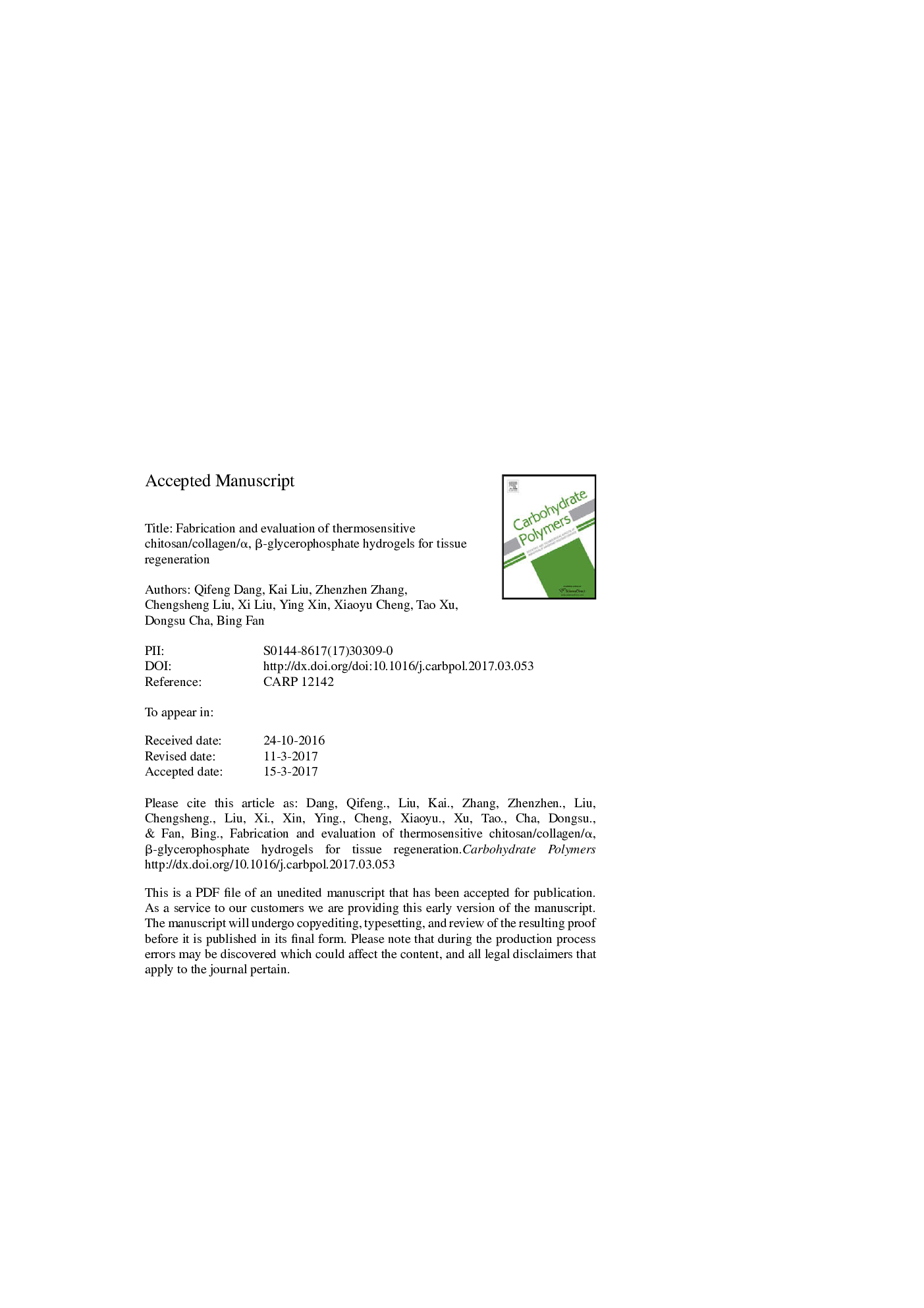| Article ID | Journal | Published Year | Pages | File Type |
|---|---|---|---|---|
| 5157690 | Carbohydrate Polymers | 2017 | 39 Pages |
Abstract
Thermosensitive hydrogels whose physiological properties are similar to extracellular matrix have been extensively used for tissue regeneration. Polysaccharides and proteins, as biocompatible substrates similar to bio-macromolecules that could be recognized by human body, are two preferred polymers for fabrication of such hydrogels. A series of novel thermosensitive hydrogels (CS-ASC-HGs) containing chitosan (CS) and acid-soluble collagen (ASC) were thus prepared, in the presence of α, β-glycerophosphate, to mimic extracellular microenvironment for tissue regeneration. Rheological measurements demonstrated excellent thermosensitivity. FT-IR and SEM indicated CS-ASC-HGs possessed 3D porous architectures with fibrous ASC, and the molecular structure of ASC was well-maintained in hydrogels. Hemolysis, acute toxicity, and cytotoxicity tests suggested CS-ASC-HGs were of good biocompatibility. CS-ASC-HGs were able to support the survival and proliferation of L929 cells encapsulated in them. Moreover, CS-ASC-HGs had better pH stability and biocompatibility than pure CS hydrogel. These results suggested that CS-ASC-HGs could serve as promising scaffolds for tissue regeneration.
Keywords
Related Topics
Physical Sciences and Engineering
Chemistry
Organic Chemistry
Authors
Qifeng Dang, Kai Liu, Zhenzhen Zhang, Chengsheng Liu, Xi Liu, Ying Xin, Xiaoyu Cheng, Tao Xu, Dongsu Cha, Bing Fan,
